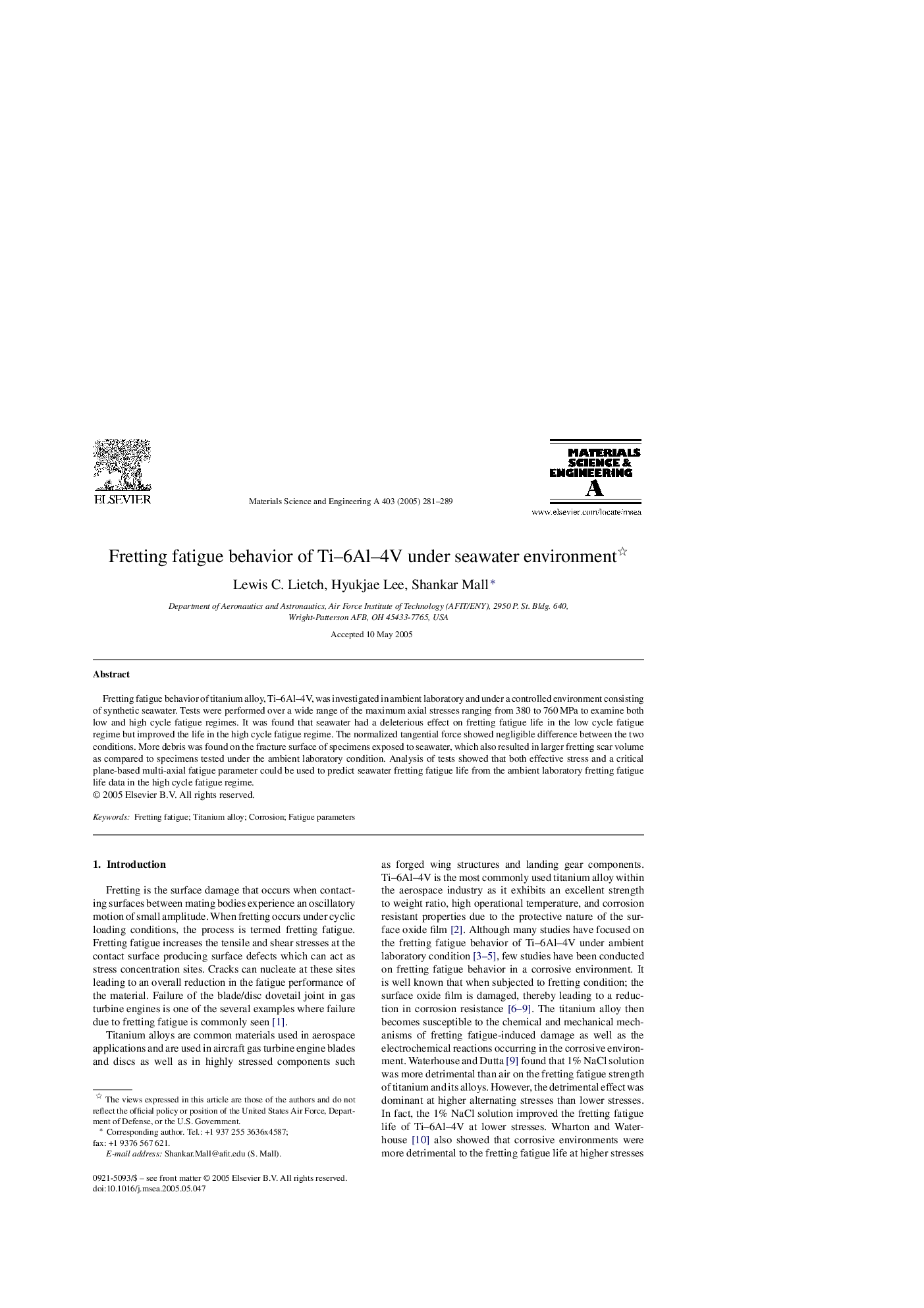| Article ID | Journal | Published Year | Pages | File Type |
|---|---|---|---|---|
| 9796008 | Materials Science and Engineering: A | 2005 | 9 Pages |
Abstract
Fretting fatigue behavior of titanium alloy, Ti-6Al-4V, was investigated in ambient laboratory and under a controlled environment consisting of synthetic seawater. Tests were performed over a wide range of the maximum axial stresses ranging from 380 to 760Â MPa to examine both low and high cycle fatigue regimes. It was found that seawater had a deleterious effect on fretting fatigue life in the low cycle fatigue regime but improved the life in the high cycle fatigue regime. The normalized tangential force showed negligible difference between the two conditions. More debris was found on the fracture surface of specimens exposed to seawater, which also resulted in larger fretting scar volume as compared to specimens tested under the ambient laboratory condition. Analysis of tests showed that both effective stress and a critical plane-based multi-axial fatigue parameter could be used to predict seawater fretting fatigue life from the ambient laboratory fretting fatigue life data in the high cycle fatigue regime.
Related Topics
Physical Sciences and Engineering
Materials Science
Materials Science (General)
Authors
Lewis C. Lietch, Hyukjae Lee, Shankar Mall,
